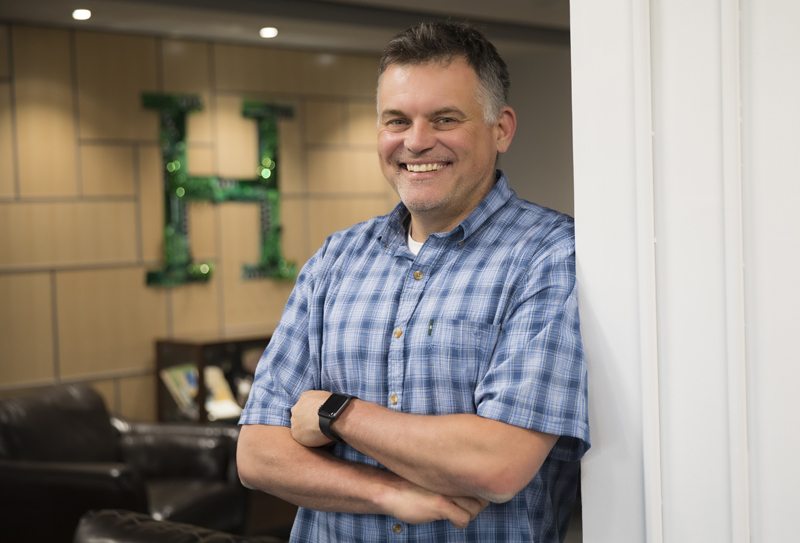Carl Lipo’s new project: Enhancing Harpur research
Q&A with college's associate dean for research and programs

Question: What are your responsibilities as Harpur College’s associate dean for research and programs?
Answer: This is a new position for Harpur College that focuses on enhancing the productivity of faculty in areas of research, scholarly work and creative activities. Some of my work involves improving the way we communicate grant opportunities to faculty, aiding faculty in developing and submitting proposals, and ensuring that the facilities needed to conduct research/creative activities are available. Other parts of the position involve forging interdisciplinary collaborations among faculty. Given Harpur’s size and diversity, many faculty are not aware of the range of expertise available on our campus, especially in other departments and colleges.
The second part of my position is to help develop new graduate programs. We have seen a lot of interest in establishing pathways for our undergraduates to continue seamlessly into advanced degree programs - existing as well as new. My role is to help faculty and departments figure the best way to create these programs using the resources we have.
Q: What areas of Harpur College do you see as candidates for expansion in the college’s research portfolio?
A: Many of the world’s toughest and most persistent problems - such as climate change or issues involving social justice - require us to move beyond traditional disciplines into inter- and transdisciplinary inquiry. Certainly, funding agencies are aware that we cannot address problems using the same assortment of tools that we have used for the past century. Instead, they see the need to develop approaches that take advantage of the intersections of disciplines. At Binghamton University, with the Transdisciplinary Areas of Excellence (TAE) initiative, we have taken leadership in creating structures that facilitate collaboration among researchers, which leads to new kinds of thinking. Harpur College, of course, forms much of the heart of the TAE initiative.
Our future, I think, has us expanding our embrace of interdisciplinary thinking and training. Given the diversity of scholarship and the strong history of collaboration that is the hallmark of Harpur College, I think we are uniquely poised in the SUNY system to demonstrate to the world what 21st-century interdisciplinary research looks like. With collaborative efforts in fields such as genocide prevention, new materials for energy production, spatial analyses, data science, materials characterization, graphic design, music production and watershed studies - to name just a few - Harpur faculty are engaging in conversations that will define the future.
Q: Harpur has a sterling reputation for its undergraduate, liberal arts education. How do you see research and that educational mission supporting each other in the future?
A: Educational programs and research activities are sometimes spoken of as mutually exclusive. I disagree entirely. I believe that a good researcher can be among the most extraordinary teachers. Much of the value of the training we provide undergraduate students is not about the “facts,” per se, but about learning how to think critically about the world and to generate conclusions.
At the same time, researchers gain from working directly with students. Students offer insights, challenge our thinking, require us to reformulate old assumptions and simply bring energy to research that is difficult to achieve in any other way. So I strongly believe that linking research and education is not only effective for teaching students but also in our pursuit of research.
Q: How have your own research experiences and travels helped you in the classroom?
A: Of all that I’ve learned through my own work, the most valuable is the act of continuing to ask questions. I like to share with students the notion that if someone tells you something (or if you read something), it is essential to be able to understand why and to learn the source of the claims. This is a lesson that I learned through my work on the prehistory of Easter Island, a history that many thought was entirely known. While I began my work by assuming that what I had read in books was true, I soon realized that most of what I had read were claims for which I could find no evidence. This led me to ask questions, ultimately leading me to challenge (and overthrow) much of what we thought we knew about the island.
I like to share this experience with students, as I hope it shows them that they should never settle for answers based on claims of authority or tradition (even our own!). The job of students is to learn how to learn - and then to use this process as a basis for assessing everything. Being a critical thinker is the most powerful skill one can have and will serve students well in whatever career and future they encounter.
